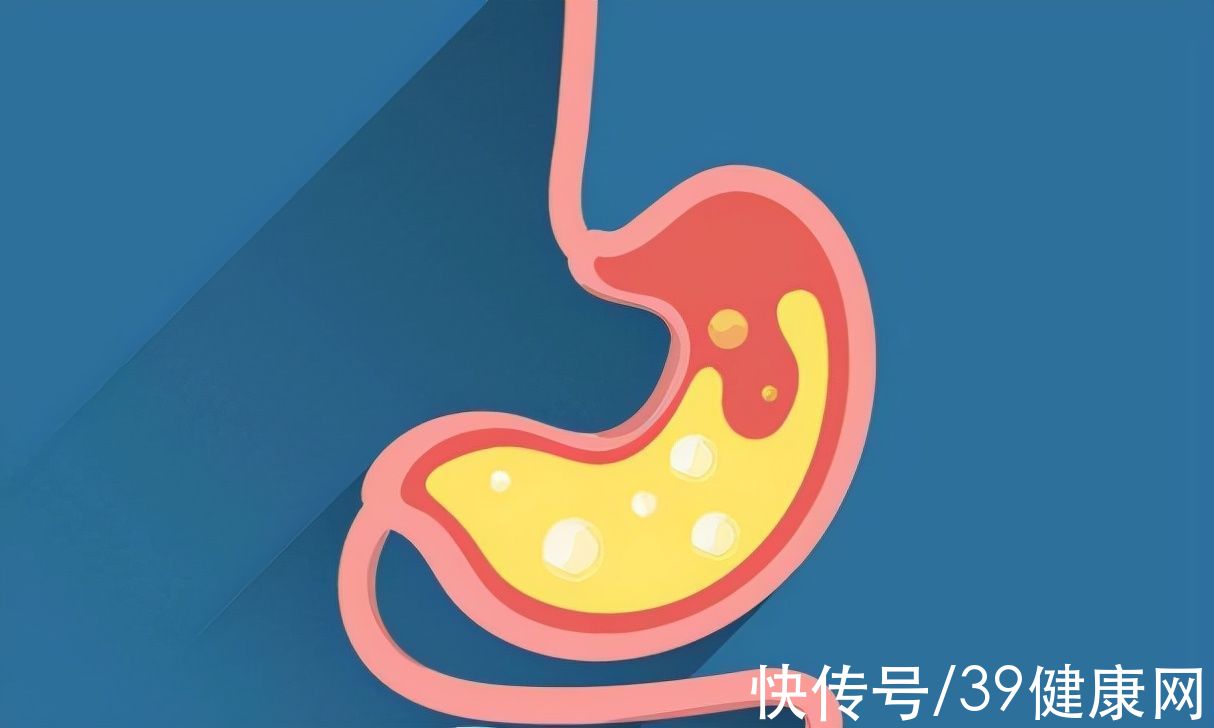內容目錄
Mr. Liu, who is over 50 years old, has repeatedly experienced angina pectoris in the past year. He takes nitroglycerin for each attack, but the symptoms are not significantly relieved, and gradually he develops symptoms of chest pain. One night, he suddenly felt a sharp pain in his chest. His family suspected that it was a myocardial infarction, so they rushed him to the hospital.
When I arrived at the hospital, the cardiologist also initially suspected that it was a myocardial infarction, but after some examinations, the cause was not found, and Lao Liu was asked to go to the gastroenterology department for examination. Although Lao Liu was very puzzled, he did it anyway. After a 24-hour acid test and esophageal pressure measurement, he was diagnosed with gastroesophageal reflux disease, combined with a hiatal hernia, and the doctor explained that the chest pain was caused by this disease.

I believe many people will wonder what is gastroesophageal reflux disease after seeing the above cases? Why is it that it is a stomach problem, but it is “camouflaged” as angina pectoris and chest pain? Today Xiaojiu came to do a good science.
What is gastroesophageal reflux? Why reflux?
Gastroesophageal reflux disease is a clinical syndrome with heartburn and acid regurgitation as the main symptoms caused by the reflux of stomach and duodenal contents into the esophagus. Stomach acid “leaving” from the stomach will not only penetrate the esophagus and damage the esophageal mucosa, but may also run up to the throat, nasal cavity, bronchi and other parts, causing other complications.
There are many reasons for the reflux of gastric contents. Bad eating habits, such as overeating, eating too much greasy, irritating food, or eating too much crude fiber food, etc., can lead to indigestion, Gastric reflux occurs when food stays in the stomach for too long, or when the esophageal sphincter fails to hold down the stomach contents.
If there is a disease in the stomach, such as decreased esophageal peristalsis and slow gastric emptying, the contents that have been left in the stomach for a long time will also reflux. Especially in the elderly, due to the atrophy of the esophageal muscle group, the motor function of the esophagus is reduced, the resting pressure of the lower esophageal sphincter is reduced, and the anti-reflux defense ability is reduced, which makes it more likely to suffer from gastroesophageal reflux disease.

Gastroesophageal reflux disease is associated with more than 70 symptoms and is easily misdiagnosed
Gastroesophageal reflux disease Influenza is a well-known “pretender” in disease circles, and its cunning is that there are more than 70 symptoms. In addition to typical acid regurgitation and heartburn, there are also some atypical and confusing symptoms such as cough and expectoration, dry throat and pain, chest tightness, shortness of breath, and difficulty breathing, which can easily be misdiagnosed.
1. Mistakenly thought it was coronary heart disease and went to the Cardiology Department
Gastric acid refluxed into the esophagus, which would stimulate the common pain afferent nerves of the heart and esophagus , so that the brain thinks it is chest pain. At the same time, reflux of stomach acid into the esophagus can cause esophageal spasm, which is similar to the pain caused by angina pectoris. In addition, part of the stomach acid can also reflux into the trachea, causing symptoms of chest tightness and shortness of breath.
These combined factors can easily lead patients to mistakenly think that it is coronary heart disease and seek medical attention in the Cardiology Department, especially for elderly patients who have experienced coronary insufficiency.

2. Misunderstood pharyngitis and went to ENT department
< p>The ENT is connected with the digestive tract, and reflux will also damage the mucous membrane of the throat, resulting in symptoms such as sore throat, pharyngeal foreign body sensation, hoarseness and other symptoms, which will also have a certain impact on the nose and ears. It is easy to be treated as chronic pharyngitis, rhinitis or otitis media and other diseases.
3. Mistaken it for asthma and went to the respiratory department
Reflux enters the trachea, which can easily cause symptoms such as coughing, expectoration, suffocation, asthma and other symptoms In severe cases, aspiration pneumonia, pulmonary fibrosis, etc. If the prominent symptom is cough, and the gastrointestinal symptoms are not typical, the patient often first sees a respiratory department. Therefore, patients with non-seasonal onset of cough and even asthma should be especially vigilant.

GERD is cancer risk
GERD in disguise It often leads to a very high rate of misdiagnosis, and some people even mistreated for more than ten years. After the real cause is found, the treatment time is often missed, and even serious consequences.
Long-term gastroesophageal reflux can cause inflammation of the esophageal mucosa, leading to erosion and ulceration of the esophageal mucosa, and repeated “erosion-repair” under the inflammatory reaction, and then evolves into Barrett’s esophagus, a cancer of esophageal adenocarcinoma According to data, people with Barrett’s esophagus have a 40 times higher risk of cancer than the general population.
Therefore, once there are symptoms, it must be treated as soon as possible to avoid the development of cancer.

To solve acid reflux and heartburn, these methods are indispensable
1. Drug treatment
The purpose of drug therapy is to inhibit gastric acid secretion, control reflux, and repair damaged esophageal mucosa. Combination drugs are often used, including proton pump inhibitors (PPIs, ie, various XXprazoles)-based antacids and mucosal repair agents.
In gastric diseases caused by mucosal damage, drugs that actively repair the mucosa are particularly important. Taking Kangfuxin Liquid as an example, different from other drugs, it contains polyols, epidermal growth factor, mucin, etc., which has the functions of anti-inflammatory, reducing swelling, promoting cell proliferation and growth of new granulation tissue, and can accelerate the damaged tissue. Repair, accelerate the shedding of necrotic tissue, so as to actively repair the mucosa and improve the treatment effect.

2. Eat well
Patients should eat a light diet, eat more vegetables and fruits, and eat less or no food that irritates the stomach, such as candy, fried food, coffee, strong tea, alcohol, etc. At the same time, they should also control their food intake, eat seven It is advisable to be full and avoid overeating. Avoid lying down and strenuous exercise after meals to prevent acid reflux.
3. Adjust sleeping position
If Usually there is a problem of acid reflux at night. It is recommended not to eat within 2 to 3 hours before going to bed, and to raise the head of the bed when sleeping, because the esophagus and the stomach form an obtuse angle at this time, and the gastric contents are not easy to reflux. In addition, avoid lying flat Symptoms can also be relieved by sleeping on the left side, with the cardia slanted upward.
In short, in addition to drug treatment, good eating habits and living rhythm can be effectively controlled to effectively control gastroesophageal reflux. .
References:
1. Bai Xinghua. Gastroesophageal reflux disease: a disease that is easily misidentified [J]. Shanghai Journal of Traditional Chinese Medicine, 2019 :20-25.
2. Luo Baochen. Gastric acid reflux can easily lead to esophageal cancer[J]. The Old World, 2019: 51-52.
3. Lin Qiaochang. Efficacy observation of combined rabeprazole in the treatment of gastroesophageal reflux disease[J].Chinese Medicine Guide,2010:103-104.